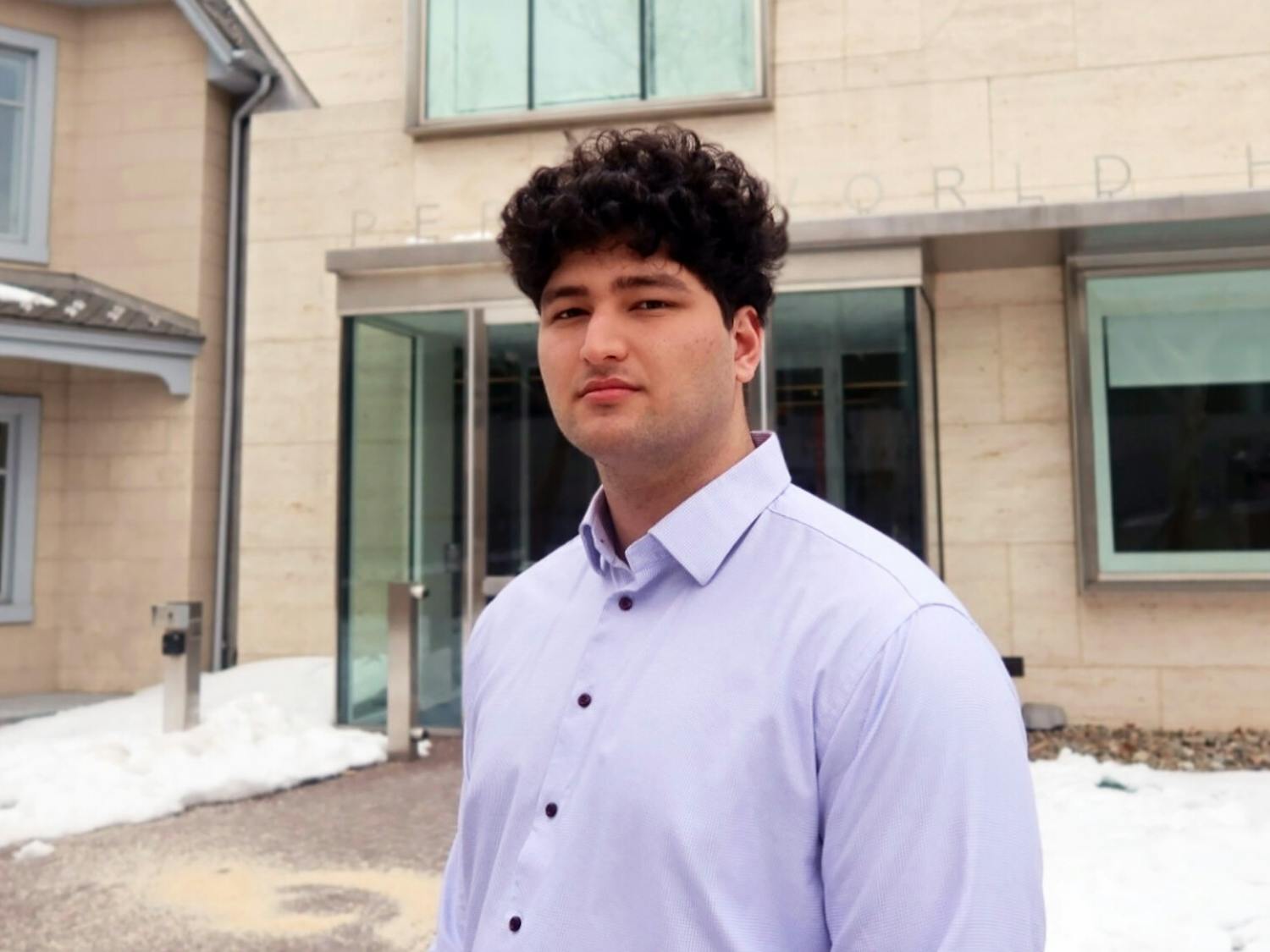Estelle Brookhouse had two children and was pregnant with another child when she was homeless about three years ago. She moved in and out of friends' homes and occasionally stayed in temporary shelters. Now, Brookhouse is working to solve the homelessness problem as the "teen coordinator" at the People's Emergency Center in West Philadelphia. "Of the shelters I've been at, this one is the best," Brookhouse said. She now lives in a private apartment on the third floor of PEC. For her, one of the more valuable resources that the center provided was childcare education. PEC started as an all-volunteer program staffed primarily with University and Drexel University students. At its beginning, the Center functioned from the first floor of the Asbury Methodist Church on 33rd and Chestnut Streets. It was only open on weekends and had beds for less than 10 people. In 1983, the facility underwent major renovations which allowed 25 to 30 people to be housed each night. But as the number of homeless families in Philadelphia increased, so did the demand for services beyond the traditional bed and meal. While the PEC provides emergency services that other shelters typically offer such as food and temporary housing, its strength lies in the implementation of transitional services which work to solve the causes of homelessness rather than simply dealing with its results. These services include case management, a parent-child day program, housing counseling and follow-up services. PEC also offers drug and alcohol counseling, health care and educational workshops which range from self-esteem building to life skills, and GED classes. PEC's parent-child day program is one of the first of its kind in the country. Mothers receive training in life skills, parenting skills, pre-employment, and academic training. During the last year, the service reached 56 mothers, 103 children, and 65 teenage girls. And the parent day care program teaches the women ways to discipline children other than hitting them, and gives them the tools and self-esteem necessary to make good parents. Seeing a need for continued services for homeless families who have been placed into permanent housing, PEC started a "follow-up service" this year. Case managers maintain contact with the families through visits, phone calls, and client visits to PEC. Of the 37 families that receive follow-up service, all are still in their permanent homes. · Through the cooperative efforts of city and state agencies, private foundations and individuals, the PEC moved into a $2.5 million facility on the 3900 block of Spring Garden Street last November. The building was converted from a three story carriage factory which the city sold to the PEC for $1. The first floor features a laundry room, emergency housing, and a restaurant style kitchen. The second floor contains space for administrative offices, classrooms, lounges, and 10 transitional housing rooms. The remaining floor contains nine apartments designated as permanent low-income housing. Seventeen different public and private agencies provided the money needed for the conversion. Often cited by housing officials as a national role model, the center is unique in the fact that it offers three types of housing under one roof -- emergency, transitional, and permanent. All residents at the shelter sign a contract and work towards reaching the goal of becoming self sufficient. "The others don't interact with their clients, they just serve them their meals," said volunteer Brookhouse. "PEC gets really involved -- the staff knew my children." The typical woman entering PEC is young and unmarried with two children, usually one infant and another young child, according to PEC Director of Development Susan Daily. The shelter has also seen an increasing demand for beds for homeless youth. Officials attribute the rise to an increase in substance abuse, especially crack cocaine, among Philadelphia families. Half of the homeless teens required shelter to escape abusive, drug-addicted parents. Daily said one of the more daunting issues facing shelters across the state is that government agencies are failing to place those who need low-income housing into appropriate facilities. "The women are being forced to remain in shelters for longer periods of time," Daily said. The average stay for a woman in the shelter is 46 days, an increase of six days from last year. Typically, the homeless women will stay on the first floor emergency housing for two to eight weeks. If they have made progress and have been working to help themselves, they will move into transitional housing on the second floor which features private family rooms. The women pay rent, maintain the condition of their family room, and enroll in an educational or employment program. After living in transitional housing for two to 18 months, the women move into their own apartments in public housing, Daily said. Last year, the emergency shelter section of PEC provided temporary housing for 68 women, teen and children per night, according to PEC's annual report. The transitional housing served 581 individuals, which included 304 children. Besides providing housing, PEC served 74,000 meals to shelter residents while an additional 12,000 meals were served to other homeless and hungry individuals. · The center manages all these services despite receiving only $10.50 from the city to shelter and feed each resident for a day. "There is a real hardship in the type of services that are able to be provided because all of the government services are very stressed," Daily said. But PEC, as a private agency, does not exclusively depend on public funding, and works to build a funding base of corporations and individuals. PEC has a paid administrative staff of 33 which includes the seven on-site case managers. Case managers work with their clients and help them to form and implement realistic goals. This service was utilized by 185 women and teens last year. The case managers also work with a number of dependent teens, those minors whose legal guardian is the Department of Human Services. Twice each week, a teacher comes to the PEC from another shelter to teach GED, or high school equivlency, classes. After living at the center, teens can move into supervised independent living situations, job corps or even group homes. Several University students can be counted among the over 100 volunteers who work at the PEC each week, according to Lorraine Latham, PEC's volunteer coordinator. Lisa deMello, a second year Social Work graduate student, works at the center 24 hours each week as part of her practicum. She said that she seeks to dispel "myths" about homeless people, such as those which attribute their status to laziness. "There are many factors that can lead to homelessness, such as substance abuse and domestic violence," deMello said. Colleen McCauley, a Nursing senior, choose to volunteer at the PEC for her clinical, a program required by the Nursing School. To McCauley, though, this experience has provided more than just a connection between academia and the real world. "It's a great education in itself just learning some of these women's life histories," McCauley said. "PEC has been very receptive towards using new energy."
The Daily Pennsylvanian is an independent, student-run newspaper. Please consider making a donation to support the coverage that shapes the University. Your generosity ensures a future of strong journalism at Penn.
Donate







